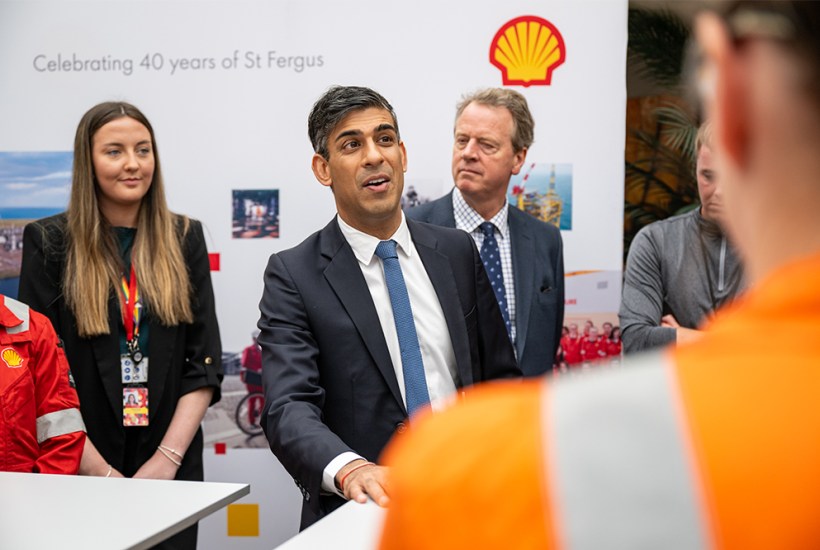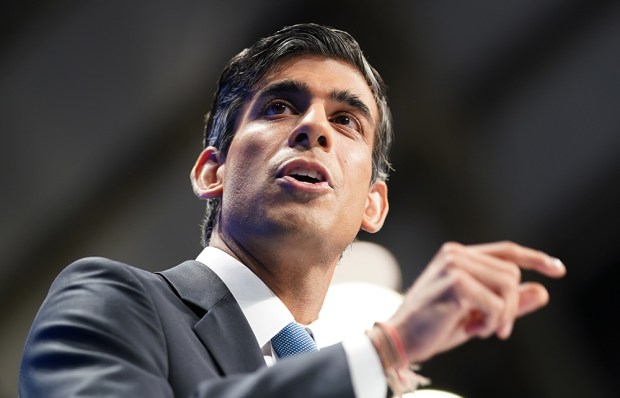The old carmakers were slow to realise the potential of electric cars and didn’t innovate. So Elon Musk, an internet tycoon, bought Tesla and stole a march on an entire industry. The internal combustion cohort then rushed to catch up: Jaguar Land Rover, Volvo and Ford all committed to go electric-only by 2030. The problem is that electric cars are expensive, so most drivers still prefer cheaper petrol ones. Ministers came up with a plan to deny people the choice, to pass laws that would ban the sale of new petrol-based cars.
This always was a conspiracy against the public, justified on very thin environmental arguments. For the average taxpaying driver, facing an unprecedented crunch in living standards, it threatened to make life more difficult still. Gary Smith, leader of the GMB trade union, spoke last week about how the old environmental agenda has ‘decimated’ working-class communities. The promised ‘green jobs’ have not yet materialised. As ‘net zero’ deadlines approach, country after country has realised they cannot carry public consent. A new pragmatism is needed.
Rishi Sunak this week laid out a different, moderate and credible path. His decision to scrap the 2030 petrol car ban – which was never properly thought-out – comes after similar moves in European countries. The pain it would have inflicted on lower-income households was not worth the environmental gain. That such a calculation is being made at all will enrage certain lobbyists and corporate interests. The chief executives at Ford are furious: they will face greater competition. But a prime minister’s job is to serve the public – and this is not done by clinging to unworkable targets.
Until now, the debate about green targets has had a depressingly shrill tone: even university professors would end up saying that either we do this ‘or we fry’. In fact, whatever Britain does on carbon emissions is unlikely to move the dial on global warming. We contribute less than 1 per cent of global emissions. As Sunak points out, Britain has led the developed world in decarbonising its economy. No other G7 country has done more. And it’s been done without forcing the poor off the roads or making air travel prohibitively expensive.
Look at air pollution: sulphur dioxide is down 98 per cent from 1970 levels. Nitrogen oxides are down 77 per cent. The average UK household uses 25 per cent less energy than a generation ago thanks to more efficient methods of heating and cooking. Renewables generate more of our national electricity than fossil fuels. Overall UK carbon emissions are down to levels last seen in the 1850s. This is a stunning result – made possible by capitalism, competition and innovation.
Sunak can reject the false choice between climate change denialism and unworkable net-zero targets. There is a third path here, one which would align the Prime Minister far more closely with British public opinion. Sunak can say that in aligning the UK petrol car deadline with that of the EU, he is taking the climate more seriously than Boris Johnson and Theresa May, who both made huge promises which they had no idea how to keep. While Britain may be a negligible contributor to global CO2 emissions, we have a big role to play. All voters ask is for that to be done in a way that’s credible and affordable.
When the motor industry has produced an electric vehicle which can travel 500 miles between charges and requires no more than a quarter of an hour to recharge, petrol and diesel cars will die out. It is sometimes asserted that the way to achieve such technological breakthroughs is to set deadlines. But you cannot force technology into existence through willpower or mandates.
Labour will rightly mock the Tories’ confused messaging on green commitments. But Keir Starmer is himself on a journey away from the extremes, having recently shelved his plan to spend £28 billion a year on green investment. Politicians of all hues made such promises when they were not really thinking. Now that an election is approaching, a more pragmatic and common sense approach is prevailing. This tendency can be seen the world over. Sweden’s young environment minister has moderated several green commitments. At Germany and Italy’s behest, the EU has watered down its 2035 ban on the sale of petrol cars.
In government, Sunak has already survived one ill-thought-out policy imposed on the country: the Covid lockdowns, which came about in a mass panic and trampled over existing pandemic planning. The costs are still becoming apparent, especially in terms of the calamitous effect on children’s education. Net-zero policies have the potential to wreak even greater havoc in coming decades if they are pursued in ignorance of the costs and against public consent.
Sunak will soon seek to present himself as a leader who can be trusted, who does not promise what he cannot deliver, who offers the best long-term solutions to problems. Yet his problem is that so many of the current messes were created by other Tories. Saying, in essence, that only the Conservatives can solve their own problems will be a tough message. He is starting to differentiate himself from his predecessors and present a more plausible agenda. Moderating his policy on net zero is an important step.
Got something to add? Join the discussion and comment below.
Get 10 issues for just $10
Subscribe to The Spectator Australia today for the next 10 magazine issues, plus full online access, for just $10.
You might disagree with half of it, but you’ll enjoy reading all of it. Try your first month for free, then just $2 a week for the remainder of your first year.














Comments
Don't miss out
Join the conversation with other Spectator Australia readers. Subscribe to leave a comment.
SUBSCRIBEAlready a subscriber? Log in